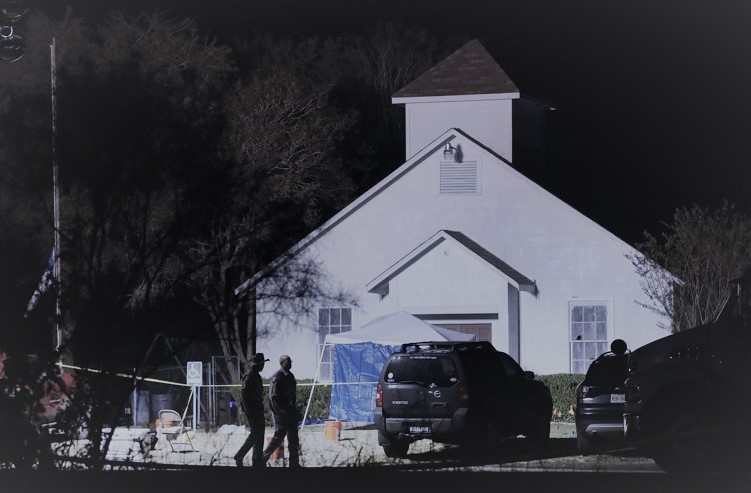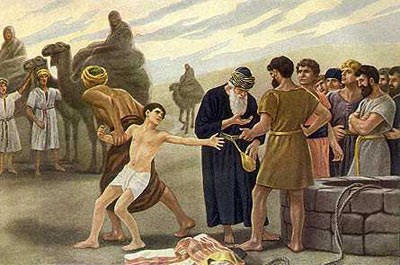 Thomas Chisholm was born in a log cabin in Franklin, Kentucky in 1866. He became a believer at the age of 27 and a Methodist preacher at the age of 36 despite a lack of formal training for the ministry. Unfortunately, after only a year poor health made it impossible for him to continue as a pastor.
Thomas Chisholm was born in a log cabin in Franklin, Kentucky in 1866. He became a believer at the age of 27 and a Methodist preacher at the age of 36 despite a lack of formal training for the ministry. Unfortunately, after only a year poor health made it impossible for him to continue as a pastor.
He later opened up an insurance office in New Jersey where continued ill health limited his income for the remainder of his life. He once said this regarding his humble circumstances, “God has given me many wonderful displays of his providing care, which have filled me with astonishing gratefulness.”
As he looked back, he saw God’s faithfulness though all the disappointments and frustrations as well as in His unfailing provision for him.
Inspired by Lamentations 3:22-23, he wrote the words to the hymn “Great is Thy Faithfulness” in 1923. He sent his poem to his friend William Runyan who added music to the words. The hymn became popular in churches throughout America after Billy Graham started using it in his crusades.
Unlike the story behind the song “It Is Well with My Soul,” Thomas Chisholm wrote this song toward the end of what he regarded as an “ordinary” life. As he looked back, he saw God’s faithfulness though all the disappointments and frustrations as well as in His unfailing provision for him.
After receiving direction to do so, I have spent the last few weeks adding more of my story to a book I am writing. This has stirred up many memories of the dark times in my life. I remembered walks late at night crying out to God in the midst of great personal pain. My time of affliction was long and filled with much despair.
I remember reading Lamentations 3:22-39 during this time and wondering if I would ever see the Lord’s compassion again or the end to my grief.
Now, however, as I look back at how the Lord rescued me from my trying circumstances and healed the deep wounds of my heart, I celebrate His faithfulness.
After I finished the task of adding my story to the opening chapters of my book, I listened to “Great is Thy Faithfulness” on YouTube. As I reflected on the words, I felt like every phrase of this hymn applied specifically to me. I especially liked the words, “Strength for today and bright hope for tomorrow.” The Lord gave me strength even at times when I did not even realize it and faithfully renewed my hope of eternity when my outlook for this life seemed so dim.
God has been exceedingly faithful to me in bringing me through all my ups and downs. He has brought me to a place of rest that I could not have imagined twenty years ago. Where would I be without His unfailing goodness to me?
Although Chisholm may have regarded his life as ordinary, God has used the words he wrote to bless millions. His testimony of God’s faithfulness through the everyday messes of life has resounded through the church for many decades.
We never know how the Lord can use our lives. Even through what might seem mundane to us, He can use our experiences and testimony in ways we cannot imagine. When he wrote "Great is Thy Faithfulness," Chisholm may have thought his words would drift into obscurity as have the many other poems he wrote. He likely could never have imagined the lasting impact of what he penned so long ago.
God's plan for our lives even extends beyond the here and now. In eternity, we will see the full end of God’s faithfulness as we see His purposes for all we endure on earth. In His hands, each unique (and even ordinary) story will fit perfectly into a beautiful and amazing kaleidoscope that will bring Him glory forever.
There we will continue to celebrate and sing of God’s great faithfulness for thousands of years to come.
We will fully understand just how much the Lord can use ordinary lives. It's what lies at the end of our paths that matters the most.



 As I reflect on the Sutherland Springs shooting this past Sunday, the word “brutal” comes to my mind. In 2 Timothy 3:2 the Apostle Paul says that people will become “heartless, unappeasable . . . brutal . . . treacherous, reckless” during the last days. Is this not what we are seeing throughout our world to an ever increasing degree?
As I reflect on the Sutherland Springs shooting this past Sunday, the word “brutal” comes to my mind. In 2 Timothy 3:2 the Apostle Paul says that people will become “heartless, unappeasable . . . brutal . . . treacherous, reckless” during the last days. Is this not what we are seeing throughout our world to an ever increasing degree? During our visit to Savannah, Georgia last year, my wife and I came across a painting, La Parabola, at the Telfair Academy for art. The painting, shown above, depicts the entire life of a woman in two separate panels. I felt a sense of sadness as I initially studied the painting.
During our visit to Savannah, Georgia last year, my wife and I came across a painting, La Parabola, at the Telfair Academy for art. The painting, shown above, depicts the entire life of a woman in two separate panels. I felt a sense of sadness as I initially studied the painting. Obsession. I think that in many ways this describes the day in which we live. People become obsessed with an idea, interest, desire, or emotion and soon it dominates social media and the news as it consumes everyone’s attention. Everyone reading this post likely knows the nature of the current obsession.
Obsession. I think that in many ways this describes the day in which we live. People become obsessed with an idea, interest, desire, or emotion and soon it dominates social media and the news as it consumes everyone’s attention. Everyone reading this post likely knows the nature of the current obsession. Irma Jean Wessels was a friend of my mom while I was growing up in Rockford, Illinois. I had not thought of her for many years until last Sunday when our pastor read Luke 18:28-30 as a part of his sermon. There, in response to Peter pointing out his sacrifice in following the Savior, Jesus responded with these words, “Truly, I say to you, there is no one who has left house or wife or brothers or parents or children, for the sake of the kingdom of God, who will not receive many times more in this time, and in the age to come eternal life.”
Irma Jean Wessels was a friend of my mom while I was growing up in Rockford, Illinois. I had not thought of her for many years until last Sunday when our pastor read Luke 18:28-30 as a part of his sermon. There, in response to Peter pointing out his sacrifice in following the Savior, Jesus responded with these words, “Truly, I say to you, there is no one who has left house or wife or brothers or parents or children, for the sake of the kingdom of God, who will not receive many times more in this time, and in the age to come eternal life.” Imagine the entire state of Texas covered two feet deep with silver dollars. If you have ever spent any time driving in Texas, you realize this is a huge number of coins. In addition, let’s say one of the coins is painted red.
Imagine the entire state of Texas covered two feet deep with silver dollars. If you have ever spent any time driving in Texas, you realize this is a huge number of coins. In addition, let’s say one of the coins is painted red. Imagine if you will, a man explaining to his fiancé his vision for their future once they are married.
Imagine if you will, a man explaining to his fiancé his vision for their future once they are married.

 Do you remember the song Alfie from 1966 and its famous question: “What’s it all about?” I recently asked similar questions in regard to my writing: “Why does it matter?”
Do you remember the song Alfie from 1966 and its famous question: “What’s it all about?” I recently asked similar questions in regard to my writing: “Why does it matter?”